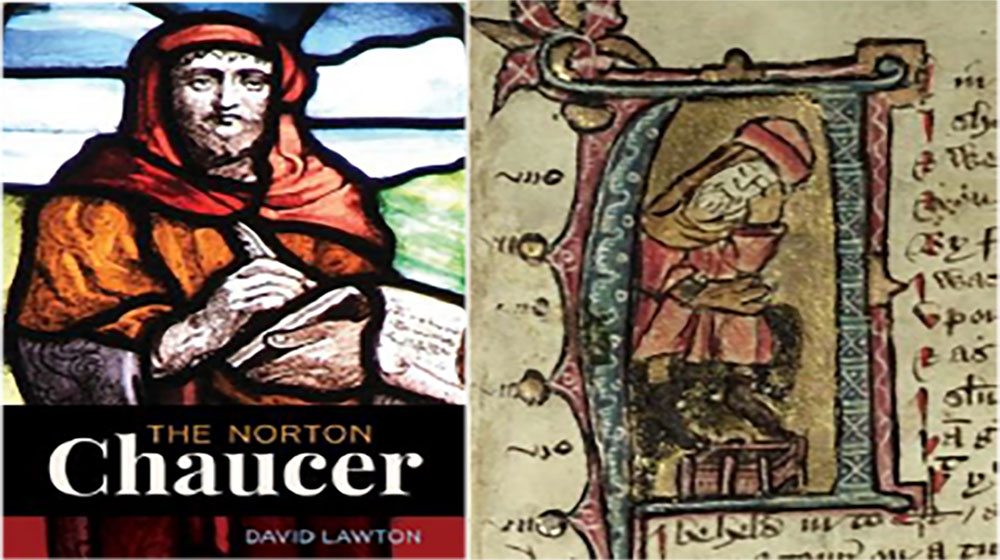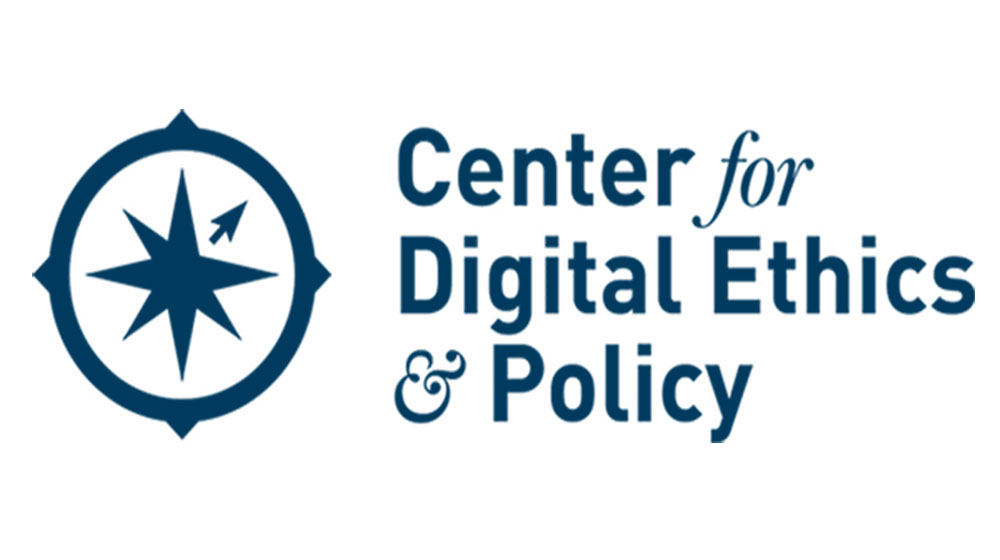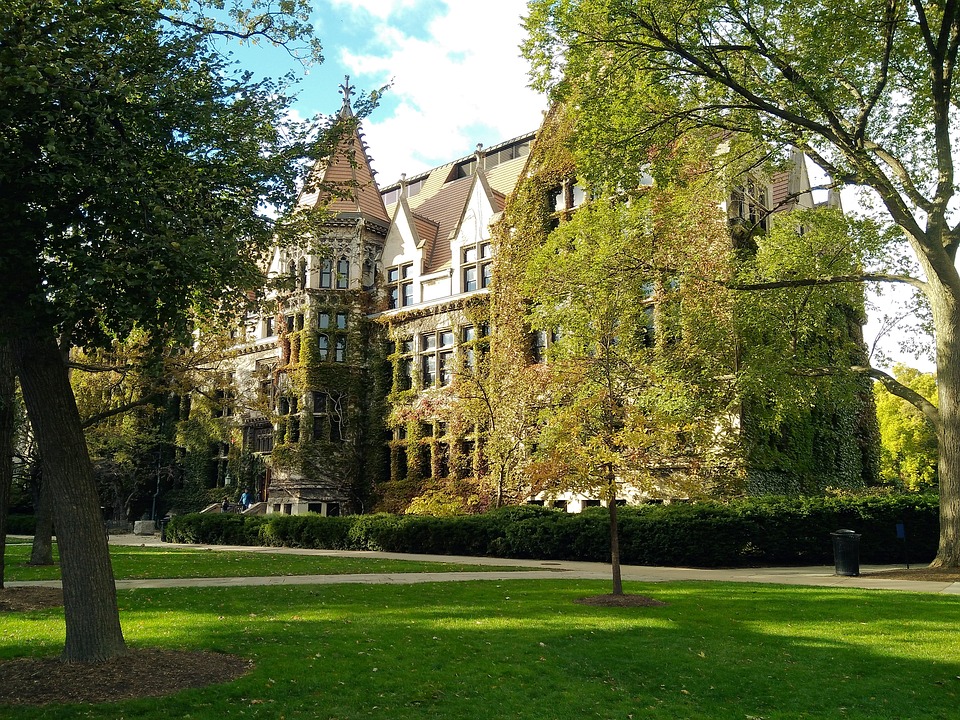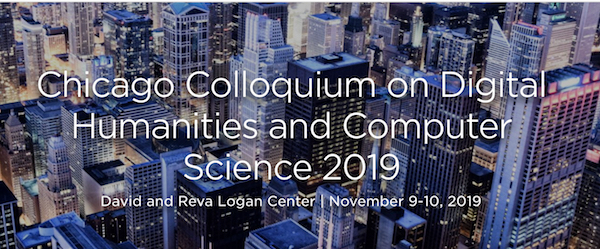Conferences
The CTSDH has in recent years hosted the Chicago Colloquium's Digital Humanities and Computer Science conference (2011, 2018) and the International Society for Textual Studies conference (2013). Every year it helps to organize and co-sponsors, with the Martin J. Svaglic Chair in Textual Studies, two day conferences on a range of topics in textual studies and digital humanities. The CTSDH also sponsors or co-sponsor regular lectures and presentations by distinguished scholars working in the areas of textual studies or digital humanities.

Textual Studies and the Nonhuman Turn: A Symposium
The Martin J. Svaglic Fall Lecture, “Textual Studies & the Nonhuman Turn, A Symposium" will be held on Thursday, Nov. 21, 2019 from 4:30-6:00 p.m. on the 4th floor of the Information Commons. The two talks will be on the subject of Walt Whitman and Emily Dickinson's works and current textual studies projects. Sponsors are Marta L. Werner (Martin J. Svaglic Chair of Textual Studies) and CTSDH. Free and open to the public!

CONFERENCE
Upcoming: "Editions and Manuscripts of Middle English Poetry"
Join us Saturday, October 12th, 2019 on the fourth floor of the Information Commons for "Editions and manuscripts of Middle English poetry," a conference that will feature five lectures on late medieval English poems and the manuscripts and editions that transmit them.
DETAILS
Call for Papers
Call for Abstracts: 9th Annual Digital Ethics Symposium
The Center for Digital Ethics & Policy at Loyola University Chicago (digitalethics.org) will be holding its 9th annual International Symposium on Digital Ethics on November 7th & 8th, 2019. Abstracts for papers related to digital ethics should be submitted by May 20th, 2019.

EVENT
Upcoming: Chicago Colloquium on Digital Humanities and Computer Science 2019
DHCS 2019 is fast approaching! As last year's hosts, we are excited to see how University of Chicago extends the conversation about the current state of DH. The conference will be held in the David and Reva Logan Center, November 9-10. Make sure to RSVP and we will see you there!
DETAILS
CONFERENCE
University of Chicago to host Chicago Colloquium on Digital Humanities and Computer Science 2019
Conference call for papers
The Call for Papers was just issued for DHCS 2019 to be held Nov 9-10, 2019 at the David and Reva Logan Center at the University of Chicago. Click through for more information.
The Society for Textual Scholarship and Textual Cultures 2022 Conference
Join us at the 2022 Society for Textual Scholarship (STS) Conference with the theme: Cultural Mapping hosted at Loyola University Chicago, May 26-28.
The 2022 STS conference—the first in-person conference since 2019—will take place May 26-28, 2022 at Loyola University Chicago, with the conference theme “Cultural Mappings.” Following, and we hope furthering, the work of “reckonings” begun in the 2021 meeting — the critical analysis of the past, reflection on the present, and speculation about the future of textual scholarship as we transit through a period of multi-dimensional, global upheaval — we seek to explore the multivalent ways mapping as a mode of inquiry and a methodological tool in the field of textual scholarship makes visible the meanings of cultural heritage and contributes to our affective experience of emplacement. The work of cultural mapping is capacious and allied with deep mapping, community mapping, ecological mapping, counter-mapping, qualitative GIS, and emotional mapping. What does it mean to dwell? How are texts and other works also cartographs that give us access to the sedimented strata of our experiences in a lifeworld flourishing with multiple voices, present contingencies, contested pasts, and imagined futures?
Advance registration is open through May 6. Please go to this page to begin the registration process. You can access general conference information here. A copy of the program is available here.
Editions and Manuscripts of Middle English Poetry
October 12, 2019, 9:30-5:00, Loyola University Chicago, Lake Shore Campus , Information Commons 4th Floor
This day conference features five lectures on late medieval English poems and the manuscripts and editions that transmit them. Papers will explore the editorial work of medieval scribes, the responsibilities of modern editors, and the contributions of multimedia digital technologies (text, image, and voice) to editorial endeavors today. Speakers will share lessons and questions that emerge from their experience editing the works and studying the manuscripts of Geoffrey Chaucer, William Langland, and other poets of fourteenth-century England. The day concludes in a workshop on designs for a new hybrid online and print edition of Langland’s Piers Plowman for classroom use and launch of David Lawton’s new Norton Chaucer.
The CTSDH has in recent years hosted the Chicago Colloquium's Digital Humanities and Computer Science conference (2011, 2018) and the International Society for Textual Studies conference (2013). Every year it helps to organize and co-sponsors, with the Martin J. Svaglic Chair in Textual Studies, two day conferences on a range of topics in textual studies and digital humanities. The CTSDH also sponsors or co-sponsor regular lectures and presentations by distinguished scholars working in the areas of textual studies or digital humanities.
